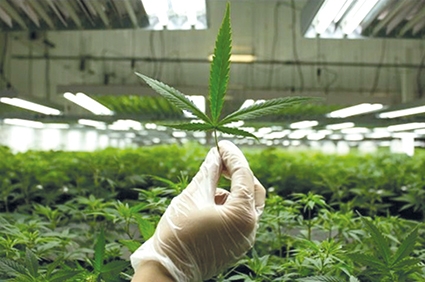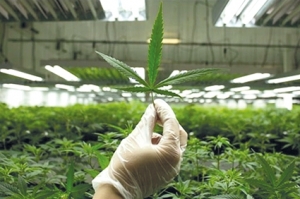Money in the Pot: Does Georgia’s Economy Need Cannabis?
Speaking about the legalization of marijuana in Georgia, Deputy Minister of Internal Affairs Natia Mezvrishvili last week stated, “the consideration of this issue has been postponed for an indefinite term,” thus bringing an end to discussions which have been a focal point of political rhetoric since the decriminalization of cannabis earlier this year. The topic has divided the opinion of politicians and Georgians alike and even led to the arrest of Zurab Japaridze, leader of the opposition party Girchi, during a cannabis festival in October. However, the cannabis industry is worth billions worldwide and is growing rapidly. With high levels of debt, is Georgia losing out on potential (and much-needed) economic growth by dropping the discussions to legalize cannabis?
Georgia’s economy, although growing, could be destabilized by the relatively large amount of private and public debt. According to a Forbes article, the debt from private and public Georgian companies amounts to more than 110% of the GDP, much higher than the recommended maximum of 50% for a country like Georgia. Moreover, debt is rising. Between 2010 and 2017, foreign debt increased by 189%. It is expected to reach $2.3 billion by 2020.
Although many countries have high levels of external debt (the US had $18.6 billion in 2017), the International Monetary Fund recommends paying off foreign debt as quickly as possible, especially since the financial crisis of 2008. Moreover, the fluctuation of the Lari in recent years makes external debt more problematic for Georgia. Some experts believe that the high levels of debt could cause instability in the runup to the 2020 elections.
The Georgian economy currently relies heavily on tourism and industry. However, Georgia could potentially benefit from the exploding cannabis market by allowing the plant to be grown for export. Although the exact value of cannabis sales remains unknown as it is still illegal in many countries, it is expected to be a $35 billion industry by 2020 in the US alone.
The industry could not only bring additional income but also create thousands of jobs. The American state of Colorado created more than 10,000 jobs after legalizing cannabis in 2014. Moreover, crime fell in Denver by 14.6% in the first three months following its legalization, making further savings for the district.
However, Andrew Freedman, a consultant who advises governments on cannabis production, says, “at the end of the day, the debate shouldn’t be about tax revenue. ‘Is this going to create more burden on public safety?’- that’s where the debate should be.”
The political rhetoric surrounding the cannabis debate often focuses on shallow political attacks rather than a truly analysis of the potential effect on society and the economy. Politicians voiced concerns of creating a “drug-dealing” economy and “a nation of cartels” without often discussing the potential negative and positive impacts in detail. In fact, many countries are now producing cannabis without experiencing a boom in drug-related problems. The UK currently leads production with 44.9%, followed by Canada (38.4%), Portugal (10%), and Israel (4.4%).
However, a recent article in the British newspaper The Guardian accuses the marijuana industry of above all benefiting the pockets of the producers. Should Georgia legalize cannabis in Georgia, it would need to regulate the industry to ensure the country would benefit as a whole. Nonetheless, the decision of politicians to halt discussions to legalize cannabis could mean that Georgia will lose out on the opportunity to boost its economy and lessen its debt. Other countries are already exploiting the potential of the lucrative market.
By Amy Jones











